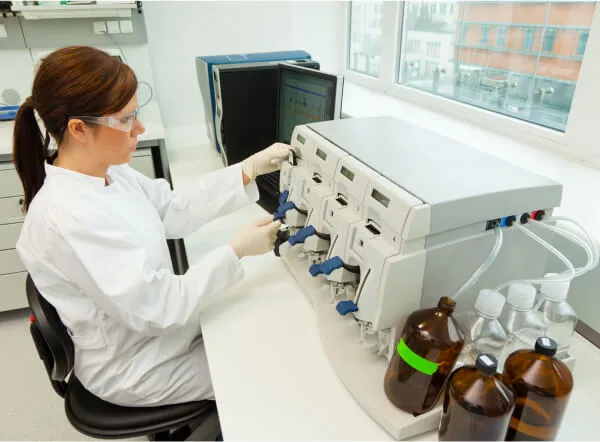Phytopathology

Phytopathology professionals research plant diseases that threaten to destroy crops, forests and other plant-rich environments. Learn about related occupations, employment outlook, educational requirements and course topics.
<h2 id="section---IsPhytopathologyForMe">Is Phytopathology for Me?</h2>
<h3 id="section---CareerOverview">Career Overview</h3>
<p>Phytopathology, also known as plant pathology, is the study of both infectious and non-infectious plant diseases. Plant pathologists strive to keep plants healthy in order to protect landscapes and forests, as well as food crops, from dangerous pathogens. As a phytopathologist or plant pathologist, you might work for a university, state or federal agency, <a href="https://learn.org/articles/What_is_Plant_Biotechnology.html">biotechnology</a> company, diagnostic laboratory or private agricultural consulting firm.
</p>
<p>With an education in phytopathology, you could also be a soil or plant scientist. Soil scientists conduct soil studies and evaluate ways to improve soil conditions for plant growth. You may analyze the effects of crop rotation, tilling, erosion and fertilizers on soil and plants. As a <a href="https://learn.org/articles/Plant_Scientist_Frequently_Asked_Career_and_Salary_Questions.html">plant scientist</a>, you might devise technologies to improve a crop's resistance to disease, drought and insects.
</p>
<h3 id="section---Employment">Employment</h3>
<p>According to the U.S. Bureau of Labor Statistics (BLS), employment opportunities for <a href="https://learn.org/articles/Agricultural_Scientist_Job_Duties_Career_Outlook_and_Education_Requirements.html">agricultural scientists</a>, the job category to which plant pathologists belong, were expected to increase 9% from 2012-2022, which is average compared to other job sectors; soil and plant scientist jobs are predicted to increase 8% during that same time frame. This would be due in part to an increasing need for protection of plants, water and soil from harmful agents, including disease-causing pathogens (<i>www.bls.gov</i>).
</p>
<p><i>PayScale.com</i> reported that the salary for most plant pathologists was $19,393-$85,713 in March 2014; this 10th-90th percentile range included salary and bonuses. The BLS reported that agricultural and food scientists earned median pay of $58,610 in 2012. Soil and plant scientists earned median pay of $58,740 in 2012, per the BLS.
</p>
<h2 id="section---HowCanIWorkInPhytopathology">How Can I Work in Phytopathology?</h2>
<h3 id="section---Education">Education</h3>
<p>Education for aspiring plant pathologists is available at both undergraduate and graduate levels. Undergraduates can start out with a bachelor's degree in <a href="https://learn.org/articles/Botany_Degree_Programs_and_Colleges_Your_Questions_Answered.html">botany</a>, <a href="https://learn.org/articles/Agriculture_Majors_Your_Career_and_Salary_Questions_Answered.html">agriculture</a> or <a href="https://learn.org/articles/Biological_Science_Degree_Programs_Answers_to_Your_Questions.html">biological science</a>, all of which commonly offer training in phytopathology. A bachelor's degree is sufficient for many agricultural scientists, with job possibilities in the farming, soil and food industries.
</p>
<p>For research positions, a master's or doctoral (Ph.D.) degree is ordinarily required. Graduate courses in plant pathology may include genetics, disease resistance, plant-microbe interactions and tree diseases, in addition to pathologies of field plants, plant virology and epidemiology. A master's program may require a thesis; a Ph.D. program requires independent research, a dissertation and an oral examination in your area of interest.</p>


.svg)